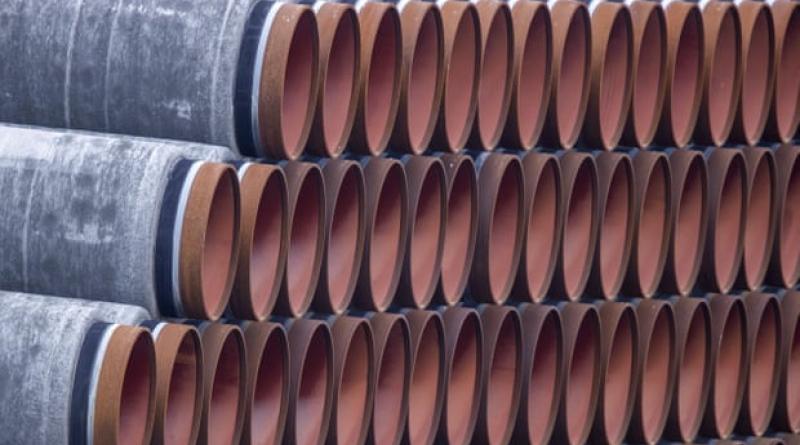Australia's proposed gas pipelines would generate emissions equivalent to 33 coal-fired power plants.

Report warns if $56bn worth of developments go ahead, it could threaten the goals of the Paris climate deal and lead to billions of dollars in stranded assets.
Australia has $56bn worth of gas pipelines in development that, if all built, would be expected to allow pumping of greenhouse gases equivalent to 33 coal-fired power stations, an analysis has found.
The report by the Global Energy Monitor, an anti-fossil fuel research group based in San Francisco, said there are more than US$1tn ($1.3tn) in oil and gas pipeline projects on the books globally.
It said if they go ahead they would threaten the goals of the Paris climate agreement, undermine the pledges by most of the world’s major economies to be carbon neutral by mid-century and could lead to billions of dollars in stranded assets as countries move towards net zero emissions.
Australia ranks fifth on a list of countries planning new pipelines, behind China, the US, India and Russia, with nearly 8,500km at pre-construction stage.
The report said that length of pipeline had the potential to allow nearly 5bn tonnes of CO2 emissions, the equivalent of 33 1,000 megawatt coal-fired power plants.
It noted the Morrison government used the Covid-19 crisis to back fossil fuel projects that failed to attract funding before the pandemic as part of what it has called a “gas-led recovery”, and that the National Covid-19 Commission supported a dramatic increase in spending on gas pipelines.
It suggested projects that could receive government support included the $1.2bn Hunter gas pipeline intended to deliver gas from northern Australia to Newcastle. The pipeline would be expected to connect to Santos’ proposed Narrabri coal-seam gas development, which was approved last year but the company is yet to make a final decision on whether to go ahead.
The report also referred to the Victorian government’s decision to push ahead with an assessment of a liquefied natural gas import terminal at Crib Point, south-east of Melbourne, to feed a proposed gas pipeline despite concerns the Covid-19 lockdown was preventing citizens from participating.
Ted Nace, executive director of the Global Energy Monitor and a co-author of the report, said new gas and oil pipelines risked locking in fossil fuel infrastructure for decades ahead. The typical lifetime for a gas pipeline is 50 years, but a growing number of countries have promised net zero emissions by mid-century.
“Pipeline infrastructure is an enabler. It’s not just giving heroin, it’s giving the needle to the addict,” Nace said. “In times of systemic change it’s one of the things you should focus on. Even within five years there are going to be better solutions.”
Every Australian state has a net zero target for 2050, though some have expressed the goal more stringently than others. The prime minister, Scott Morrison, has said he wants the country to reach net zero as soon as possible and “preferably by 2050”, but has resisted formally adopting the target or introducing climate policies to get there.
The government says it is backing a technology-led approach, but not explained how and when it expects that to reduce emissions or what it will do to ensure it does.
Official data released in December projected only a 6.8% cut in national emissions over the next decade. If the electricity sector, where cheap solar and wind energy are having an impact, is excluded, the emissions across the rest of the economy – including transport, big industry, mining and agriculture – are not projected to fall in that timeframe.
The Global Energy Monitor report cited a warning from 25 Australian scientists last August that the country had no room to expand the gas industry if it was to live up to the goals agreed in Paris, as it needed to reach net zero emissions before 2050 and rapidly phase out fossil fuel infrastructure.
From a global perspective, the report found China had US$173bn and the US $110bn of oil and gas projects at risk of becoming stranded assets.
The new US president, Joe Biden, blocked the Keystone XL oil pipeline, proposed to bring huge quantities of oil from Canada to the US to be refined, on his first day in office. The report said Biden will be under pressure to block other pipeline developments if he was to live up to his expansive commitments to deal with what he has described as an “existential threat to the planet”.
More than 100 countries have made some form of mid-century net zero emissions commitment after a flurry in recent months that has included Japan, South Korea, the US and China, which has said it will reach carbon neutrality by 2060.
A focus of global climate talks this year will be to bring in countries that have yet to back the goal, including Australia, and to increase short-term commitments and policies that will have an impact over the next decade. Britain and the European Union increased their ambition late last year by introducing 2030 targets of a 68% and 55% cut respectively, compared with 1990 emissions levels.
2 February 2021
The Guardian





